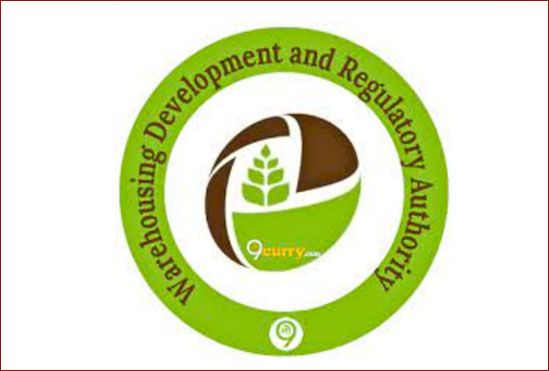What is warehouse registration under the Warehouse Development Act?
Warehouse registration under the Warehouse Development Act is a process that involves registering a warehouse facility with the Warehousing Development and Regulatory Authority (WDRA) in India. The Warehouse Development Act regulates the establishment, operation, and maintenance of warehouses in India, with the aim of promoting the development of the warehousing industry and ensuring the safety and security of goods stored in warehouses.
The registration process involves submitting an application to the WDRA, along with relevant documents and information such as details of the warehouse’s location, capacity, and facilities. The application is then reviewed by the WDRA to ensure compliance with the regulations and standards set by the act.
Once the application has been approved, the WDRA issues a certificate of registration to the warehouse operator, which allows them to legally operate the warehouse. The registration certificate is valid for a period of 10 years and must be renewed periodically.
The registration of a warehouse under the Warehouse Development Act is important as it helps to ensure that the warehouse operates in compliance with the regulations and standards set by the WDRA. This can help to promote transparency and accountability in the warehousing industry and provide greater confidence to stakeholders such as customers, investors, and lenders.
What are the Benefits of a WDRA License?
Legal Recognition
Registration under the Warehouse Development Act 2007 grants legal recognition to the warehouse. This recognition can instill confidence in clients and financial institutions, as it demonstrates compliance with industry standards and regulations.
Quality Assurance
Registered warehouses are often subject to quality and safety standards prescribed by the government, which helps ensure the quality of stored goods and the safety of the warehouse premises.
Access to Financing
Warehouse receipts issued by registered warehouses are generally accepted by banks and financial institutions as collateral for loans. This can facilitate access to working capital and credit for warehouse operators and farmers.
Commodity Financing
Warehouse receipts can be used for commodity financing, where stored goods serve as collateral for obtaining loans. This is particularly beneficial for farmers and traders, as it can provide funds during non-harvest periods.
Price Stability
The availability of registered warehouses helps in regulating supply and demand in the market, which can contribute to price stability for agricultural and other commodities.
Risk Mitigation
Registered warehouses often have insurance coverage, which can mitigate risks associated with fire, theft, and damage to stored goods.
Why WDRA License is required?
Warehouse registration under the Warehouse Development Act is required to ensure that warehouses in India operate in compliance with the regulations and standards set by the Warehousing Development and Regulatory Authority (WDRA). The registration process involves submitting an application to the WDRA and providing information about the warehouse’s location, capacity, and facilities.
Who can get WDRA License?
Any individual, firm, company, corporation, or cooperative society that intends to establish and operate a warehouse in India can apply for warehouse registration under the Warehouse Development Act. This includes:
- Private warehouse operators
- Public sector undertakings (PSUs)
- Agricultural produce market committees (APMCs)
- State Warehousing Corporations (SWCs)
- Central Warehousing Corporations (CWCs)
- Commodity boards
- Cooperative societies
- Exporters and importers
- Retail chains and distributors
- Logistics and transportation companies.
Who can get a VNO Approval License?
Technology companies
Retail companies
Financial Services Companies
Media and Entertainment Companies
Non-profit organizations
Startups and Small Businesses
Healthcare organizations
Document Required for WDRA License
Click Here & Check Document Check ListRole of Shamkris and Process of WDRA License
Shamkris adopts a results-oriented approach to compliance with mandatory licence requirements in the organization. A simple and guidance methodology help organisation to achieve licence in a timely manner and cost-effective. Shamkris support 100% in advisory, Guidance, Compliance with respect to license requirements to obtain approval.
The License process described below:
- Advisory for the document required
- Preparation of documents as per application & list of documents.
- Application File
- Inspection by the department if required
- Liason department
- Yearly Compliance if Applicable
- Renewal when due
Who can issue a WDRA License?
FAQ
The Warehouse Development Act of 2007 is a legal framework that regulates and promotes the warehousing industry. It outlines the rules and requirements for warehouse registration and operation.
Registering your warehouse provides legal recognition, access to financing, and compliance with industry standards. It can also attract customers and investors due to the credibility associated with registered warehouse
Eligibility criteria may vary by jurisdiction, but typically, any entity or individual involved in warehousing activities, such as warehouse operators or owners, can apply for registration.
The process for registration involves submitting an application to the relevant government authority, which may require specific documents and compliance with safety and quality standards. The exact procedure may vary by location, so it’s advisable to consult with local authorities.
Benefits can include access to financing, legal recognition, risk mitigation through insurance, market linkages, and more. Refer to the previous response for a detailed list of benefits.
In many cases, foreign companies can apply for VNO Approval Licenses, but they may need to adhere to specific regulations and restrictions regarding foreign ownership or investment.

